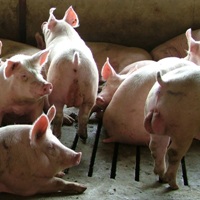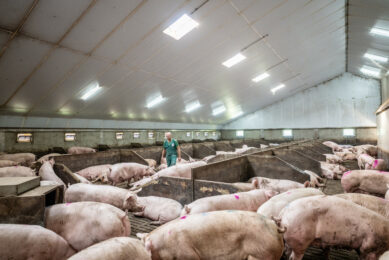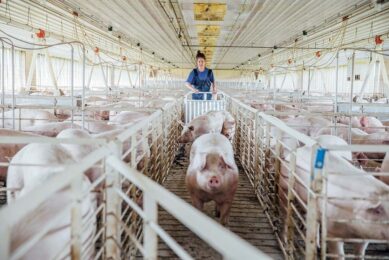Boar taint doubted in Dutch research

A report by Wageningen University and Research Centre (WUR) denies the necessity of castrating male piglets. According to these researchers, boar taint hardly develops when frying the meat of these uncastrated pigs.
The research, carried out by WUR’s Agricultural Economic Institute (LEI) and CCL Nutricontrol, showed that a maximum of several percent of the meat from male non-castrated pigs matches the definition of boar taint. Up until now it was assumed that percentage would be between 5-25%.
No recognition of boar taint
In addition, the research showed that consumers hardly ever not recognise bacon with boar taint and hence do not value this meat less than conventional pork. A research, conducted in Switzerland at the same time, reached similar conclusions.
In the Netherlands, male piglets have to be anaesthesised before castration as from next year, but no party involved is really happy with that outcome. Dutch authorities, supermarkets and industry organisations agreed to aim for a ban on piglet castration by 2015.
Researcher Gé Backus said this could be done earlier. “Boar taint is hereditary, so if we will apply specific breeding, we can lower the amount of components that cause boar taint. Whatever is left over, can be detected in the slaughterhouse.”
Example from practice
Westfort slaughterhouse in Gorinchem, the Netherlands, sometimes dealing with uncastrated pigs, said it finds on average 2-4% boar taint at the slaughterline. The carcasses are tested using a singeing test.
Generally, a slaughterhouse spokesman said, boar taint occurs more when the average weight is higher, especially with animals heavier than 100 kg.
Sentiments
Board member Jaap de Wit added that in discussions on boar taint experiences and sentiments from the past are still very important. “In the past even gilts could smell as they had been lying in their own manure and urine,” De Wit told Dutch newspaper Agrarisch Dagblad.
Over the years, however, the average age of slaughter has come down – thus reducing the number of animals with an unpleasant smell.
“Castrating, however, is still a necessary evil, which we cannot do without. Even our company is dependent on supplying the German and Italian markets and these do not want to sell boar meat.”
Related websites:
• Wageningen University and Research Centre (WUR)
• Agricultural Economic Institute (LEI)
• CCL
• Agrarisch Dagblad











